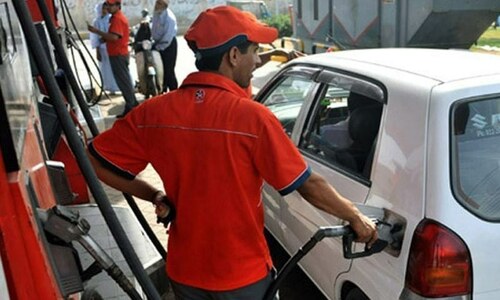In a much-anticipated address to the nation on Monday, Prime Minister Imran Khan announced a reduction of Rs10 and Rs5 in petrol and electricity prices, respectively, in addition to several other relief measures.
However, economists, journalists and opposition leaders have questioned the rationale and motivation behind the move.
Many pointed out that the relief measures go against the commitment made with the International Monetary Fund (IMF), under which the government had been increasing petroleum prices in recent weeks.
"The decision to cut petrol, diesel, and electricity prices comes on the eve of an IMF review," said Pakistan Initiative at Atlantic Council's South Asia Centre Director Uzair Younus.
"Wonder what those conversations will be like, given that the announcements are in complete conflict with what was agreed to with the IMF."
In a series of posts on Twitter, Younus explained that the subsidies announced by the government to reduce petrol and electricity prices would be "given through borrowing, for which citizens will eventually pay", in addition to paying the price for "interest and currency depreciation".
Younus further said that by making these announcements, PM Imran was "going full-on populist election mode!"
Business journalist Khurram Husain echoed Younus' views, saying "Goodbye IMF! Hello elections!"
In a subsequent tweet, he added that it was a "bad time to invoke the IMF's validation of his (PM Imran's) policies!"
Journalist Zarrar Khuhro also described the announcement as an "election year move" that was "popular" but "unsustainable".
Journalist Fahd Husain questioned where would the money to pay for these "populist measures" come from.
Journalist Asad Ali Toor also wondered what the motivation was behind the reduction in petrol and electricity prices.
"Reduction in fuel/electricity prices is [a] checkmate to [the] opposition? That mean[s] PM Imran know[s] he is going home next month and whosoever will come in power cannot keep these prices due to IMF pressure? Or does that mean PM Imran [is] going to say goodbye IMF/welcome election," he tweeted.
Meanwhile, PML-N Information Secretary Marriyum Aurangzeb said in a statement that the move was a "futile effort" by PM Imran to save his government.
Aurangzeb said the PTI government had increased the power tariff by Rs15 and petrol prices by Rs70 during its three years in government, which were reduced by Rs5 and Rs10, respectively, in the latest measures.
"This reduction is not because they realise the pain and troubles of people but because of the growing fear of a no-confidence motion against them," she added.
PML-N leader Miftah Ismail said the "PTI never has [the] money to give relief to the people. But to save Imran Khan’s job it finds a way!"
Pointing out that the government had increased petrol and electricity prices just days ago, he also questioned: "Did economics change in the last few days or has politics?"
Karachi Administrator and PPP leader Murtaza Wahab saw the reduction in prices as a direct result of the long march organised by his party.
"The Awami March has already started giving dividends to the people of Pakistan. Two days and we get petrol and electricity prices reduced. Thank you [PPP] Chairman Bilawal for leading this #PeoplesMovement," he tweeted.
PPP Senator Mustafa Nawaz Khokhar shared similar views while speaking to Geo News. “You know why is this being done as you see the opposition is already marching toward Islamabad,” he said.
PPP leader Farhatullah Babar said the move was "too little, too late". "Masses will not be satisfied until PM [Imran] is sent packing," he tweeted.














































